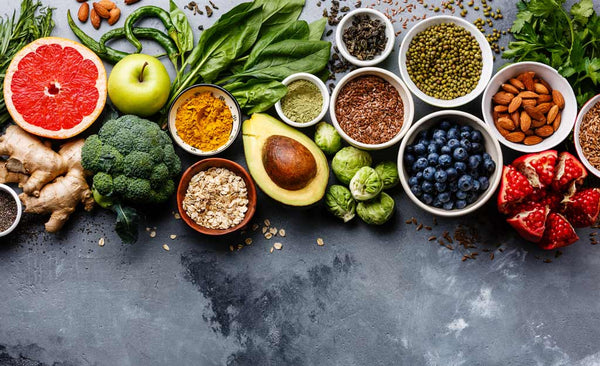
Treating Insulin Resistance Naturally
Insulin & Insulin Resistance
Insulin is the hormone made by our pancreas which helps glucose in the blood enter our muscle, fat, and liver cells where it’s used for energy. We get glucose from the food we eat, and once it’s slowly absorbed into our cells, our insulin levels drop back to a baseline. When we consume more food than what our cells need, we store the excess glucose as glycogen. When these stores are full, we then go on to store it as adipose tissue (fat cells).
Insulin resistance is a condition in which the body's cells become resistant to these effects of insulin. It is triggered by an increase in fat mass around the abdomen (visceral adiposity).
Risk Factors For Insulin Resistance
- Overeating
- A diet high in processed and refined foods
- A sedentary lifestyle
- Oestrogen dominance
- Polycystic Ovarian Syndrome (PCOS)
- Excess fat mass around the midline (visceral fat) in overweight individuals
- Metabolic syndrome (a combination of hypertension, hypercholesterolemia and visceral fat)
- A family history of type 2 diabetes and/or heart disease
Natural Treatments for Insulin Resistance
- Try intermittent fasting. There are studies which indicate fasting for extended periods can boost cell sensitivity to insulin.
-
Increase fibre intake. Options include psyllium, flaxseed, hemp seeds, chia seeds, nuts, seeds, vegetables, and legumes.
- Avoid refined carbohydrates like white bread, pasta and pastries. When consuming complex carbs, opt only for small amounts of non-starchy varieties.
- Ensure meals include adequate protein and quality fats for more stable blood sugars between meals. You can choose from wild-caught oily fish, free-range poultry and eggs, organic grass-fed meats, non-GM organic tempeh, ½ cup of legumes, nuts, seeds, avocado, and cold-pressed oils.
- Have wholesome, balanced main meals and avoid snacking.
- Limit fruit consumption. Fruits contain carbohydrates that are broken down into sugars, so they can raise your insulin levels. If you must have fruit, berries are your best option since they contain the least sugar. Avoid mangoes, pomegranate, bananas, and cherries.
- Avoid ALL sugars, particularly refined, high-fructose corn syrups. Read labels to be sure.
- Get regular exercise or engage in any activity that reduces fatty acid deposits in the body. Aerobic exercise is especially effective at reducing visceral adiposity, so go out for a brisk walk, jog or run three to four times a week.
- Consider the use of natural herbs that help stabilise blood sugars and reduce improper fatty acid synthesis. (Please see Recommended Insulin Resistance Supplements below.)
Recommended Insulin Resistance Supplements
- An antioxidant complex will help prevent degeneration of beta cells in the pancreas.
-
Herbal medicine formulations such as Cinnamomum Zeylanicum, Berberine, Bitter Melon and Gymnema Sylvestre are known to reduce blood sugar levels in people with diabetes. Gymnema is an ingredient in Happy Hormones.
- Nutritional support in the form of chromium picolinate, lipoic acid, and magnesium is recommended to improve insulin resistance. These supplements also help protect against diabetic complications and facilitate normal carbohydrate metabolism.
Featured Articles
Recent Articles
The Science of Happiness
Charting to Conceive
7 Signs of Depression to Watch Out For
Why am I always tired?
Happy Smoothie Bowl
5-Minute Kale Salad
Grilled Mustard Brussels
7 Strategies to Increase Your Iron
Roasted Cauliflower Garlic Soup
Happy Shape Protein Tea Cake
Happy Weight Berry Ripe Smoothie
Quick Miso Soup
Turmeric Boost Shots
Okra Chips
Carrot Top Pesto





















